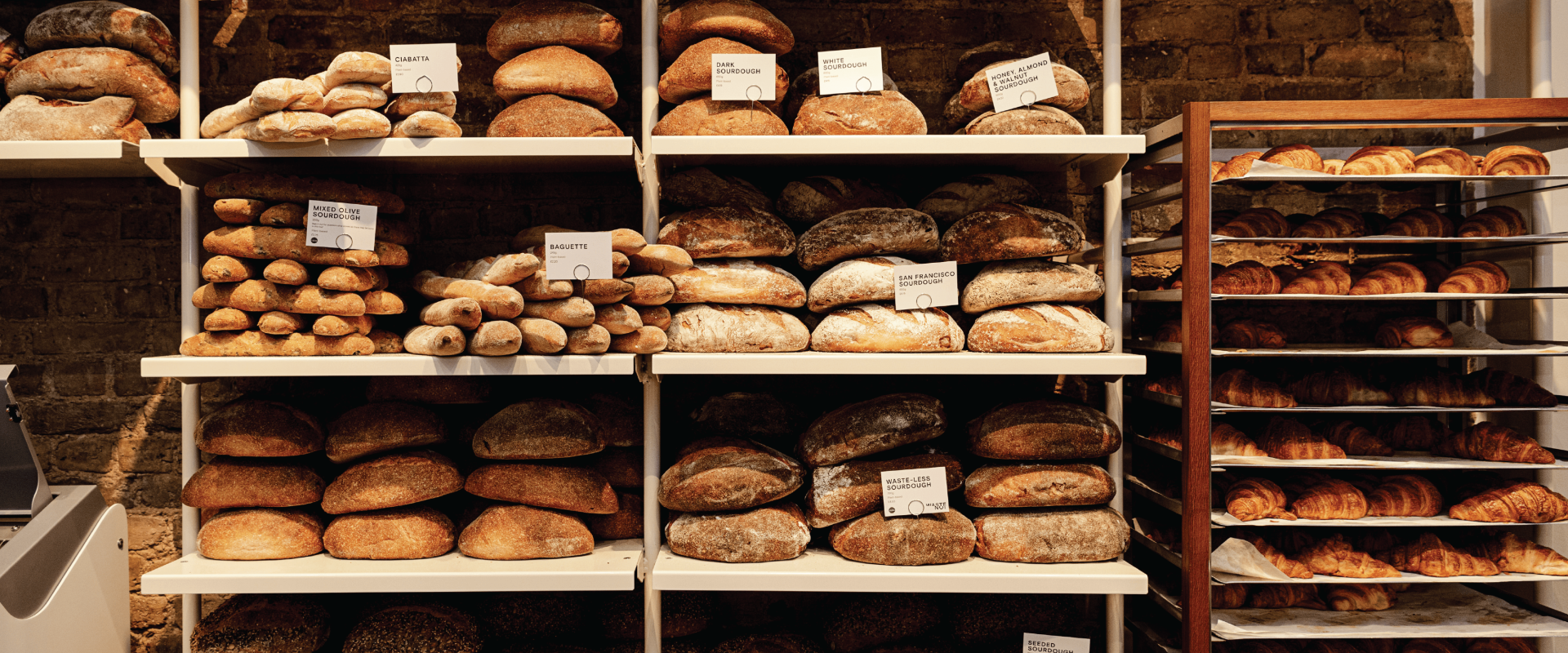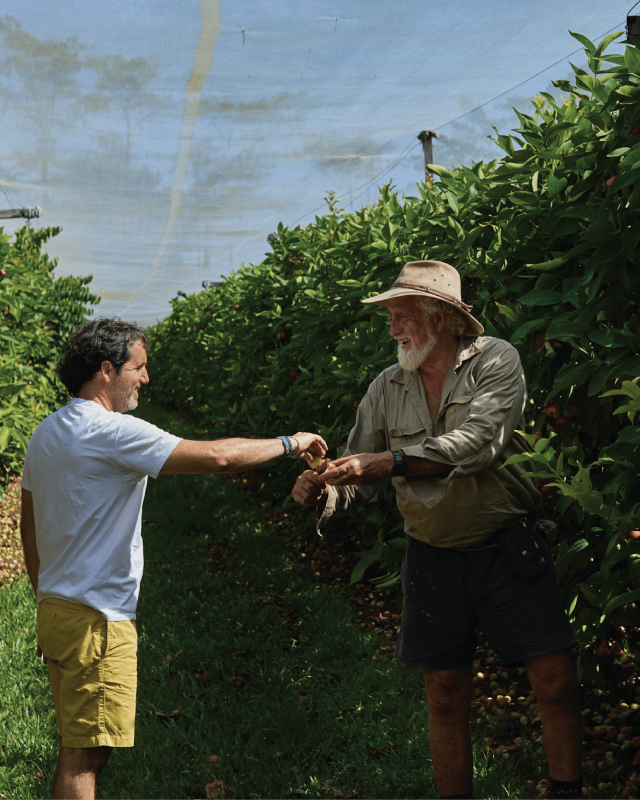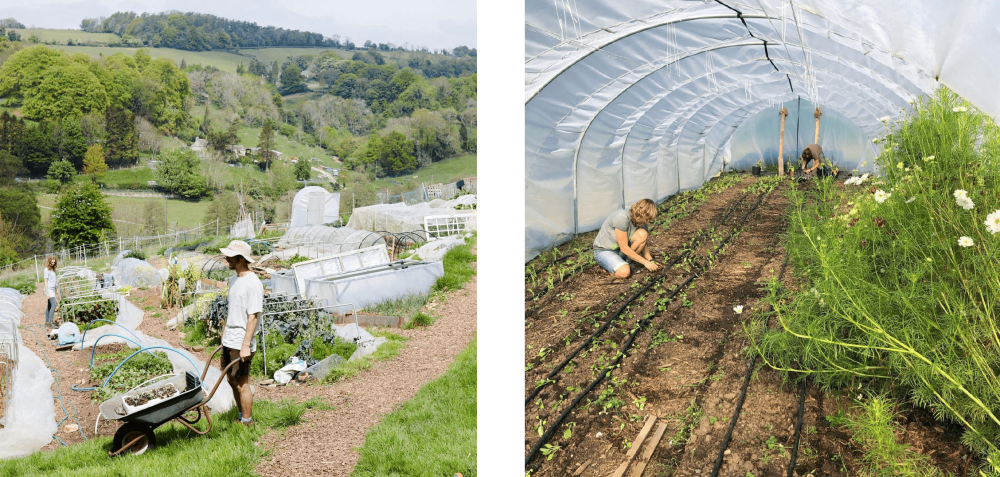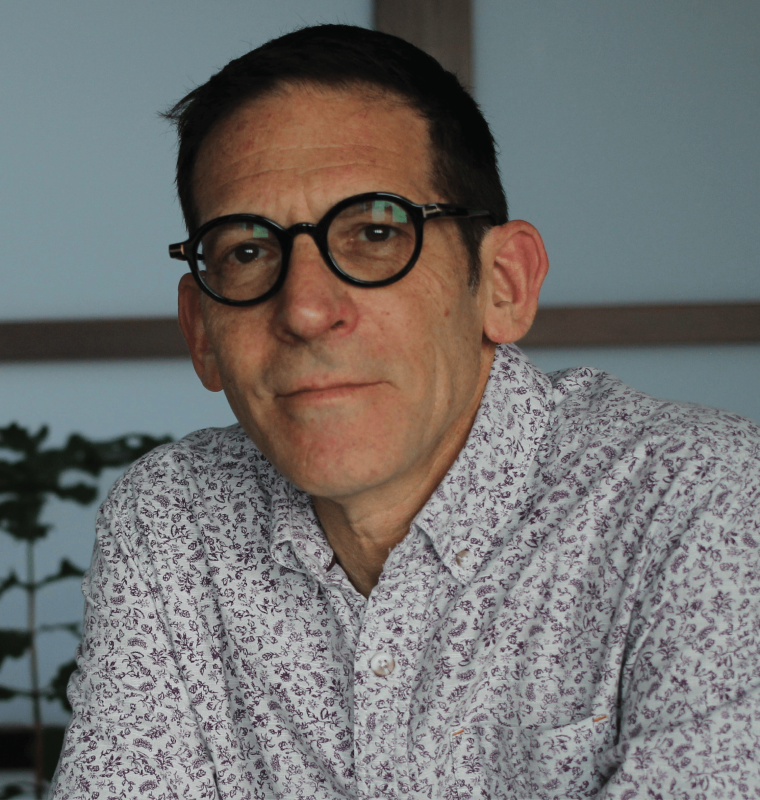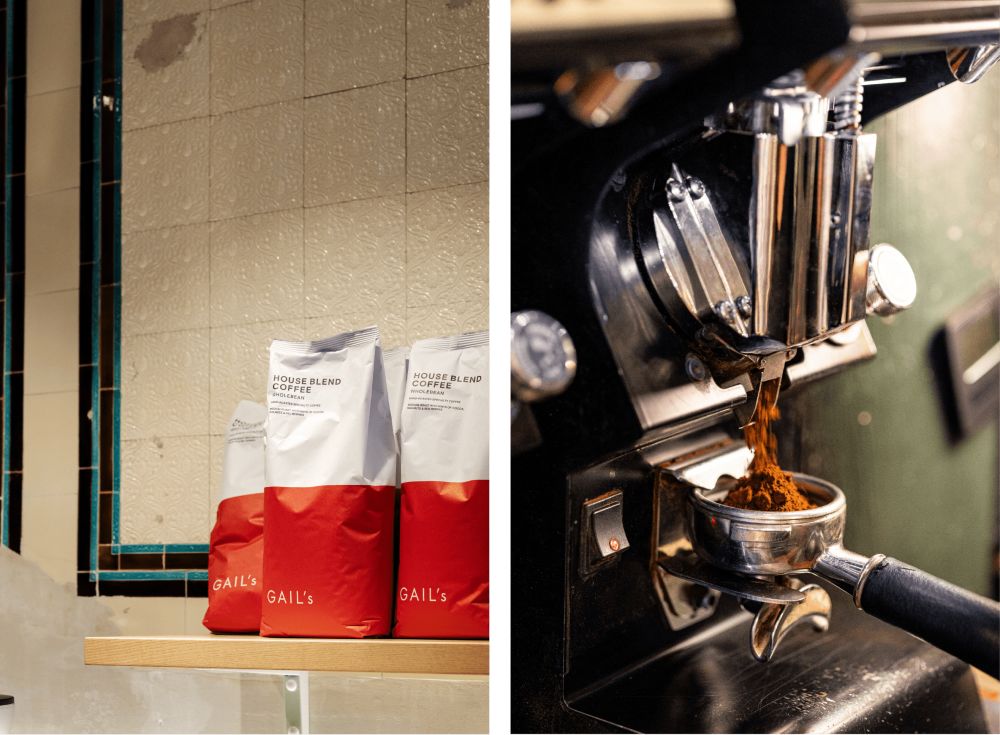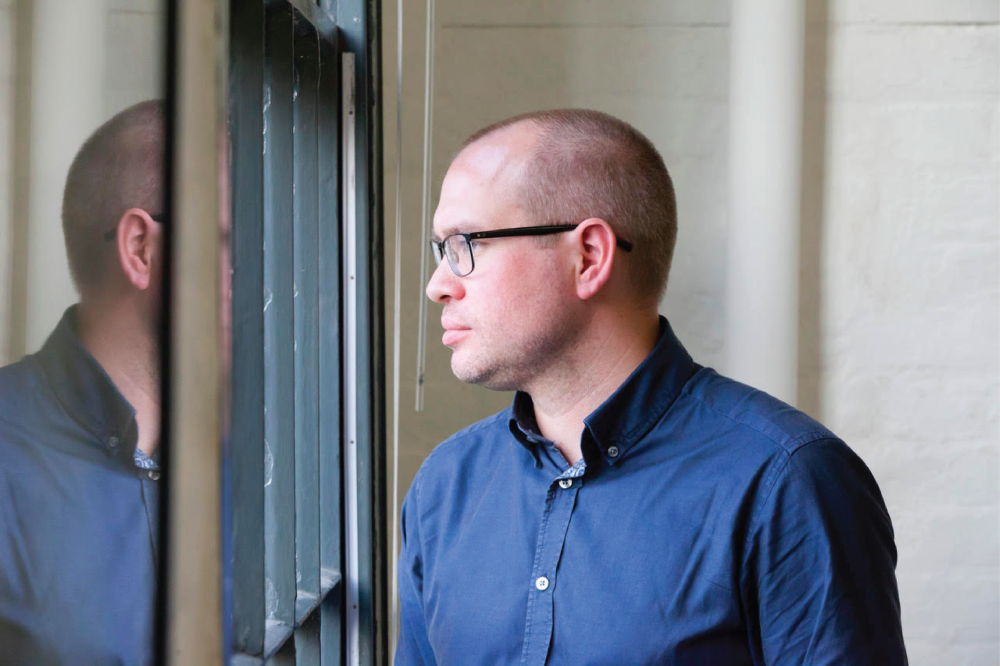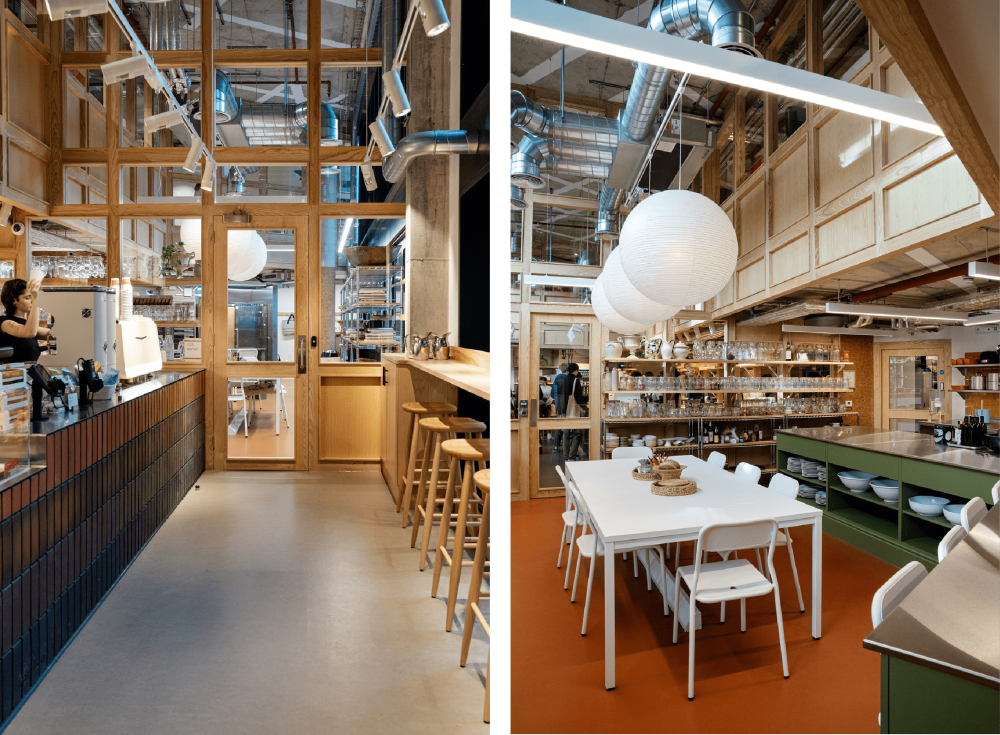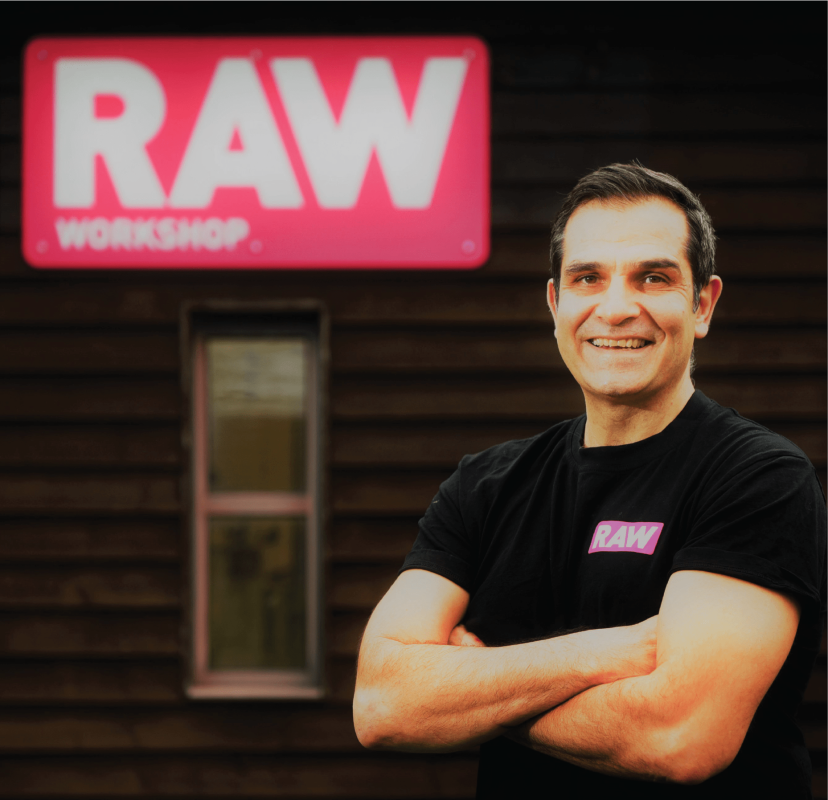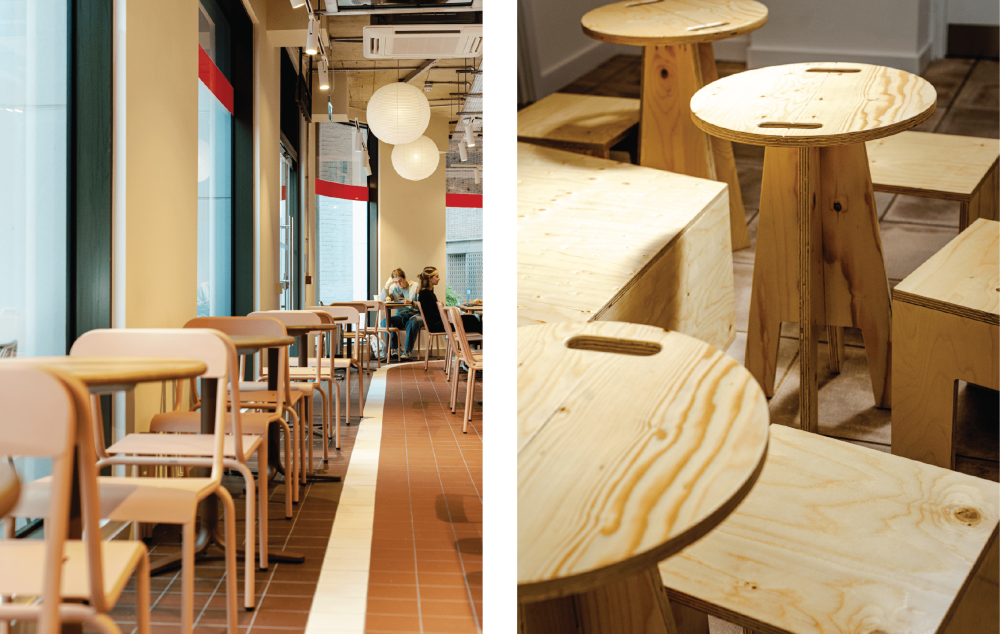The start of a new year brings with it the opportunity for reflection and the setting of intentions, a chance to define what change we want to bring about and how we will get there. So, what better time to check in with our producers and partners about what they would like to do to change the world in 2024 and beyond than at the start of January? Here, four purpose-driven organisations from the world of food, coffee and design share their reflections on what future they want to make happen.
It takes a village to feed a community, and our village is an ever-growing network of producers and partners who are united in their need to make a positive impact in the world – be that through food, design, furniture, or any other trade necessary to help our 120 bakeries tick along to their daily, seasonal and annual rhythm. Building these relationships and working with such visionary and caring people is truly life-affirming. Which is why we thought we’d start the year by asking our village about their plans for 2024 and beyond. What challenges are they looking to overcome? What changes do they want to see? As always, it made for some inspirational conversation…
Franco Fubini, Natoora
Natoora is on a mission to fix the food system by building direct relationships with small-scale growers and independent producers who put flavour first. This winter, they are making all our seasonal soups, which are in bakeries now.
In 2024, it is more important than ever that we raise up the next generation of growers: fewer than three per cent of farmers in the UK are under the age of 35, and the average age of the US farmer hit 58 at the last official count. Our experience at ground level brings these figures to life – many of the growers we work with are over the age of 50, and very few have succession plans.
At the same time, for entrant farmers, the challenges presented by today’s social, financial and ecological climate are real – systemic injustice, extreme weather, risk-averse financial institutions, labour shortages and rising costs. Without proper mentorship and support, growing is a daunting vocation that few young people consider viable.
This year and beyond, we want to raise even more capital so that we can put our weight behind the farming projects and communities whose methods offer valuable alternatives to the intensive farming systems that are depleting our ecosystems and human health. As our Farm Fund is entering its fourth year, we are setting a target of £50,000 to put into grants to support young farmers.
Natoora’s Farm Fund is supporting a new generation of farmers: “We put our weight behind the farming projects and communities whose methods offer valuable alternatives to the intensive farming systems that are depleting our ecosystems and human health. Together, we can lift up the future guardians of our planet.”
This year is also an opportunity for us to seek out talented growers and bring them into our community. Most distribution networks are like one big artery, but our sourcing network is like a capillary system, formed of hundreds of individual farms across three continents that each connect with us at a local level. Right now, we’re really excited about budding relationships with small-scale growers across our community, from Melbourne to Denmark. As we explore the world through the lens of sourcing, we never stop being blown away by the incredible individuals we meet and the lengths they go to in the name of flavour.
We want to instil a real optimism about the future: so much is possible and the more interaction between different facets of the food system, the quicker we’ll make progress. From government to growers, from big businesses to local independents, from chefs to home customers, we all have a responsibility and a role to play. Too often people or businesses are unwilling to work together because their perspectives clash or there are other priorities at stake, but ultimately we’re all in this together and we need to find a way through, collectively. This is why our partnership with GAIL’s feels so valuable. By coming together and finding flexibility in how we both operate, we can have so much more of an impact.
Jeremy Torz, Union Coffee
Union builds long-term partnerships with producers to improve both the quality of coffee and the livelihoods of coffee-growing communities. They have been hand-roasting the coffee beans we use in our bakeries for 10 years.
Sharing the joy of speciality coffee is what Union is about. It goes back to a moment in 2001 when we went out to Guatemala and saw the devastation that coffee could cause to communities, who couldn’t afford to keep their livelihoods going because of the low price of their crop, which had been totally commodified. We just thought everything about the industry was wrong and broken, so what we set out to do with Union was bring people together and share the value of what we look for in a cup of coffee, especially with producers who could then shape what they were doing to demand a better price, have a better share of the value created, and hand on their land to the next generation in better shape.
“Sharing the joy of speciality coffee is what Union is about,” says Jeremy.
This year, we want to continue to share that joy and have more of an impact. We’ve never said we want to be the biggest coffee company, but to have a meaningful impact among producers is something that drives us, and our growth provides for a function of that. In Ethiopia, we have been working for eight years with a community that grows coffee in the protected biosphere of the Yayu forest. Protecting those forest spaces is vital, and we’ve done that by improving the quality of coffee and increasing the price producers get from it. People there are happy that they are getting paid decently for the first time, and we’ve done projects such as installing a solar water pump for the community and a school for 800 students. When you’ve invested in an area and been on the ground as a partner, not just a buyer, for years, you create deeply meaningful relationships – that’s what Union is about.
We’re hoping to formalise the sort of work we’re doing in Ethiopia as a foundation in the next few months and expand the scope of it so that we can have more impact among a greater number of producers. Over 50 per cent of the producers we work with – that’s something like 40 communities in 14 countries – we’ve been with for more than five years, and there is a number we’ve been with for more than 10. When you’ve had that length of relationship, you really do see the impact of positive relationships. It might not be as sexy as launching new packaging or developing an eco-friendly pod, but it’s deeper than that; it’s got more meaning.
David Chenery, Object Space Place
Object Space Place does interior architecture for hospitality businesses that put sustainability at their heart. They designed the new GAIL’s studios in Camden, as well as many of our other bakeries.
Our business started with the simple question, ‘What does a restorative hospitality space look like?’ We were fascinated by it, and that has never gone away. Design and sustainability can be tricky to navigate, so we tried to understand it in very simple terms. We came to the idea that it’s about creating spaces that give more than they take.
The problem for designers is that we’re agents of change, and, in our field specifically, we work with clients who are opening new sites, which requires resources. Our first thought was to ask if we could decouple growth from natural resources, but we realised it didn’t make sense. If you think about natural systems like a tree, it grows by taking nutrients from the ground, but it then provides habitats for animals, as well as putting nutrients back into the soil via its leaves.
So, instead of a linear ‘take, make, waste’ economy, we started thinking about circularity: where things come from and where they are going. That’s how we developed a restorative design framework that takes out waste and pollution and keeps natural materials in the system. People often think about sustainable design as just minimising negative environmental impact, but, to go back to the tree analogy again, it should be about the positive impact you can have too. That’s why working with people like RAW (see below) is really important, because it comes with an added positive social impact.
Object Space Place designed our new Studio in Camden: “Hawley Wharf is about creating a space that matches the culture and DNA of GAIL’s, a company that takes a simple, utilitarian thing like bread, and through craft, skill and humanity, elevates it to something that is warm and life-affirming,” says David.
Our plans for next year aren’t that grand, in a way. Our ambition is to scale our impact and share more with the industry. In the last six months, we’ve been working with the National Trust, who have taken our framework and applied it to their fit-outs across their estate. We don’t have ambitions just to grow and be big; it’s about growing and being better, and we’ll go wherever being better takes us. If I had one wish for the wider industry it would be to be ambivalent about growth: it may be the answer, it might not be.
Zooming out more, artificial intelligence is already having an impact on the design world. I think most people want to see AI as a tool that removes the effort so we can do something in five seconds. But, as human beings, the effort is the point; it’s what gives things their value and makes them worth doing.
Rick Mower, RAW
RAW is a social business providing furniture, recycling and reclaimed materials services that have measurable social impact and sustainability outcomes. RAW has supplied furniture for many of our bakeries and our new studios in Camden.
Our whole attitude is questioning how things are done, asking why they are not done differently. And that’s why I think GAIL’s is such a great partner because I see that same attitude in baking. It’s about craft, it’s about humans, and it’s about asking, ‘How do we make things better?’
We set up RAW about eight years ago. The whole premise was to make furniture and provide recycling services based on quality and service. Eighty-five per cent of our team is fighting and winning battles against disadvantage and prejudice. Through my own journey, I’ve seen how so-called disadvantaged people are the most tenacious, resilient, creative people who have survived near-death experiences and adversity. And they are meant to be disadvantaged? No. They are exceptional. That’s what RAW is about.
Four years ago, Hazel, our Ops Manager, said to me: “If we had reached our employees 20 years earlier, they wouldn’t be with us.” Everything starts in childhood, and most of our workforce is excluded from school. So we now fund our own kids’ charity through which we give qualifications to children excluded from school – often, they are in gangs. The NHS has just funded us to expand it over Buckinghamshire, Berkshire and Oxfordshire, so that will be a big focus in 2024.
RAW’s beautiful furniture pieces take pride of place in many of our bakeries
We’re also hopefully going to be getting a new site and growing really fast. The reason I go for growth is that the bigger we are, the more people we can employ. We want to continue creating opportunities for people to join our tribe and our sense of belonging. We want to make our harvesting service even more circular, so we take, we refurb, we put in new and everything goes in one delivery; just smarter ways of doing the same thing.
We had two young people join us this year and we want to see more of that because I think we’re a good employer, and we have a lot of fun! With all this stuff, it comes down to the people. If it wasn’t for the people driving change and saying, ‘We want to do this,’ nothing would change. And it’s not just us: it’s the people at GAIL’s, it’s Object Space Place’s team, it’s all our other clients – it’s the people who make things special. I think the energy that brings is lush. Without being too egotistical, we want to blow the doors off stuff next year!
An inspirational bunch, wouldn’t you agree? We certainly think so, and can’t wait to see how these partners, and many more like them, progress with their missions in 2024 and beyond. Be sure to check back in on our Journal throughout the year for regular stories from our world and theirs.
